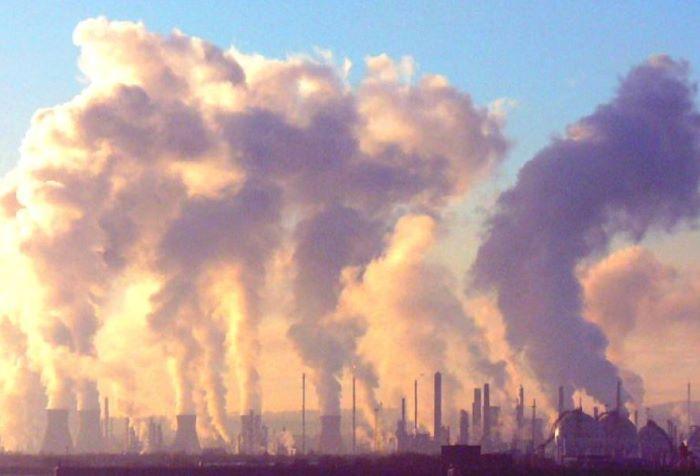Ahead of COP26, rich countries have proposed another round of updated nationally determined contributions (NDCs) by 2023 in light of the UN Emissions Gap Report. It stated that even if countries meet their 2030 targets in full, global warming would only be limited to 2.4°C by 2100. Collective ambition needs to be seven times higher to meet the ambitious 1.5°C target of the Paris Agreement, the report added.
Developing countries, however, stated rich countries should meet the huge gap between what is already in the NDCs and what is actually being implemented instead of another round of updating NDCs. They added that the world should talk about climate action and not bureaucratic updating of NDCs. The Paris accord agreed to update NDCs every five years. But developed countries argue that waiting until 2025 to step up ambition is too late to keep 1.5°C within reach.
World’s fossil fuel production not in sync with Paris Agreement: Report
Despite the various net-zero pledges made in recent days, the world is still on track to produce 110% over the amount of fossil fuels that is consistent with maintaining 1.5°C of temperature warming, and 45% more than what is consistent with 2°C, according to The Production Gap Report released this month.
According to the report, the governments’ production plans and projections would lead to about 240% more coal, 56% more oil, and 71% more gas in 2030 with gas production projected to increase the most between 2020 and 2040. The production gaps for all fuels grow much wider by 2040 under both temperature limits, it stated. There would be a wider production gap than estimated in the report if carbon dioxide removal technologies fail to develop at a large scale, or if methane emissions are not reduced, it added.
G20 still divided over coal phaseout ahead of Rome summit, say sources
Ahead of the crucial G20 summit in Rome next week, sources told Reuters member countries remain divided over phasing out coal. One of the sources was quoted as saying that such indecision was normal, and that no major announcements would be made until G20 leaders meet face-to-face at the summit. Another source said he foresees a problem cropping up when it comes to coal and fossil fuel phase outs, primarily from Russia, China and India.
Meanwhile, a document accessed by the BBC revealed some countries are trying to push the UN to play down the need to rapidly move away from fossil fuels in a report that the agency is due to publish ahead of COP26. Some of these countries include Saudi Arabia, Australia and Japan. The leak also revealed richer nations are questioning giving poorer countries more money to switch to green technologies. The UN assessment report is published every six-seven years by the agency’s Intergovernmental Panel on Climate Change (IPCC).
IMF sets up fund to help poorer nations battle climate risks
In a ray of hope for poorer nations struggling to combat climate impacts, the International Monetary Fund (IMF) is in the process of setting up a funding facility worth up to $50 billion to aid the efforts. The Resilience and Sustainability Trust will aim to redistribute finance from rich to poorer nations, which will be backed by policy support. The trust has already received endorsements from the finance ministers of G20 countries.
Richest nations to face devastating impacts from climate change without emission cuts: Study
Climate change will have devastating impacts on the G20, which includes the world’s richest economies, according to a new report. The G20 Climate Impacts Atlas, which was published just ahead of the G20 summit, found that over the past 20 years, heat-related deaths have increased by at least 15% in all member countries. It also revealed that forest fires in the G20 have burnt an area one-and-a-half times the size of Canada. And if emissions keep rising, worse is to come.
For India, the study predicted heatwaves will last 25 times longer by 2036-2065 if global temperature rise is constrained to 4°C, over five times longer if it is limited to about 2°C, and one-and-a half-times longer if emissions are very low and temperature rise only reaches 1.5°C.
Declines in rice and wheat production in the country could spark economic losses of up to €81 billion and a loss of 15% of farmers’ incomes by 2050, according to the study.
Biden administration struggling to pass key climate legislation ahead of COP26
US president Joe Biden’s efforts to combat climate change are being met with staunch opposition from pro-fossil fuel senators. With just days to go before COP26, the country is yet to pass a key climate legislation that will certainly put the US on the backfoot ahead of the crucial UN meet. Climate measures in the Biden administration’s proposed infrastructure bill and reconciliation bill are being scrapped or watered down by pro-fossil fuel senators both in the Republican and Democratic parties. One of the measures, in particular, which rewards utilities for cleaning up electricity generation most likely will not make the cut.
About The Author
You may also like
Litigation increases legalisation of protection against climate threats: Report
What COP30 reveals about the next phase of multilateralism
EU to waste billions on hydrogen pipelines in new PCI list, warns experts
India needs targeted public finance to scale green steel production
India Pushes for Critical Minerals Circularity and Collective Action on Climate at G20

